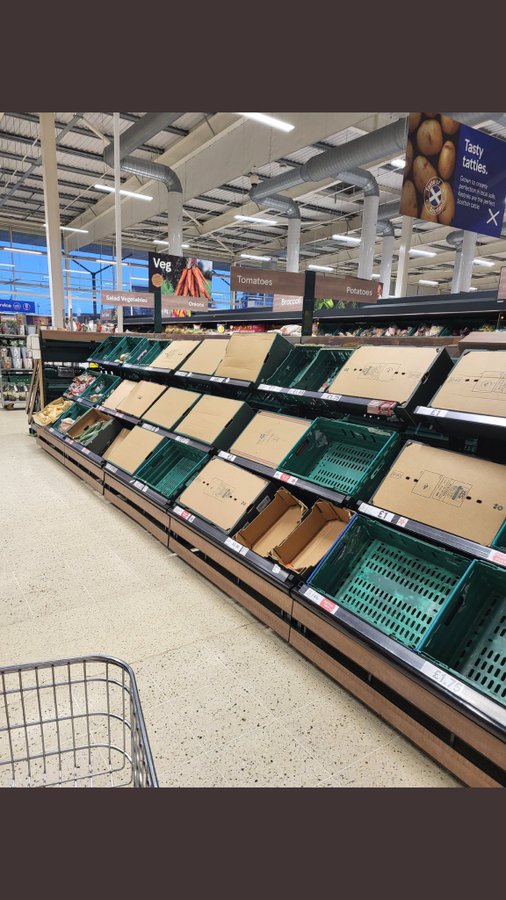Salad ingredients like cucumbers and tomatoes are in short supply, with the government and industry blaming rising energy costs and inclement weather in North Africa and Spain. Tesco, Asda, Morrisons, and Aldi have all imposed a limit on the amount of specific fresh produce customers can buy. But top producers have hit back at the government, insisting they had flagged the issue months ago. Food rationing measures also play into the hands of remainers who have pointed at staff shortages and brimming shelves across Europe. Heated exchanges among MPs speak of a blame game, with a return to regular supplies expected in April when British crops will once again be available.
British food growers have delayed plantation cycles because of a hike in energy and fertiliser costs. As a result, British tomatoes will only be ready for picking in April, meaning the shortage will likely continue until then. Speaking at the National Farmers’ Union (NFU) convention in Birmingham, the development director of one of Britain’s largest tomatoes producers, Phil Pearson, told reporters that the government did not heed any of their warnings:
“We did say, as an industry, last year: ‘If you don’t support us through the winter, you will have empty shelves.
“Government didn’t listen, our customers didn’t listen, nobody listened.”
Consumers are likely to see further food price increases. Speaking to the BBC, NFU president Minette Batters said:
“The more we face shortages, the more it will drive food inflation.
Soaring costs and bad weather blamed for fresh produce shortages
Since 2019, English and Welsh farmers have seen fertiliser prices skyrocket by 169 per cent, animal feed prices by 57 per cent and energy costs by 79 per cent. This amounts to a 50 per cent overall rise in production costs. While food prices have increased, many producers struggle to see profits.
Another cause for the food shortages is a fall in imports from Spain and Morocco, with bad weather reducing the harvests. At this time of the year, the UK imports the bulk of its salad ingredients, meaning inclement weather in Spain and Morocco directly leads to empty shelves.
Brexit to blame for food shortages – Save British Farming chair claims
No significant food shortages or food rationing measures exist across Europe. Only Ireland has seen some empty fresh produce shelves. The high cost of heating greenhouses in Holland is believed to be the cause of the shortages there.
While the government will continually cite the war in Ukraine and climate change for the empty shelves, others were quick to attribute the blame to Brexit. In a Twitter video, Save British Farming chair Liz Webster said:
“The reason that we have food shortages in Britain and that we don’t have food shortages in Spain – or anywhere else in the European Union – is because of Brexit.
“The reason we have #foodshortages in Britain is because of this Conservative government and their Brexit, and it’s not because of Spanish weather!
“Brexit messed up our trade. This also impacted our labour supply because it ended freedom of movement. It also removed the cap and food subsidies.”
Time to eat seasonally – MP suggests
In the House of Commons, food rationing also featured with North Devon Selaine Saxby MPs asking:
“I wonder if my right honourable friend agrees with me that actually the supermarkets are still importing far too many produce for us and that actually we should be eating more seasonally and supporting our own British farmers?
“And if we were actually to move to a seasonal line of eating, many of these problems would be avoided and that there are great food products available from local farmers at this time?”
In response, Environment Secretary Therese Coffey told the Commons:
“It’s important to make sure that we cherish the specialisms that we have in this country.
“A lot of people would be eating turnips right now rather than thinking necessarily about aspects of lettuce, and tomatoes and similar, but I’m conscious that consumers want a year-round choice, and that is what our supermarkets, food producers and growers around the world try to satisfy.”
After a heated exchange with Labour MP Clive Efford, Coffey said she hoped current fruit and vegetable shortages would “be a temporary issue”.
UK growers predict that by late March, British produce will be available and replenish supermarket shelves.




